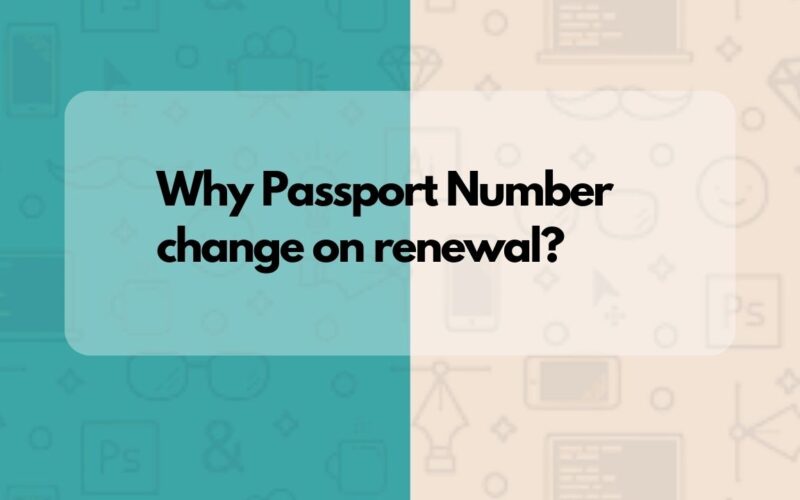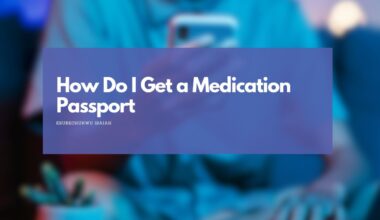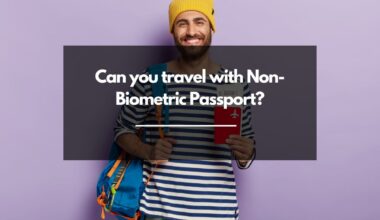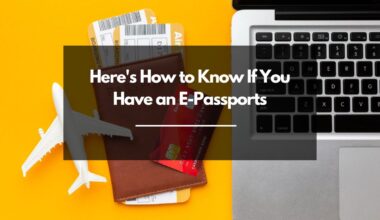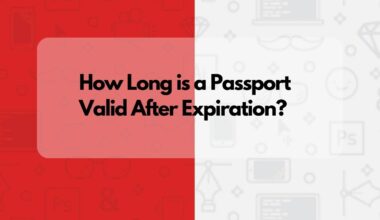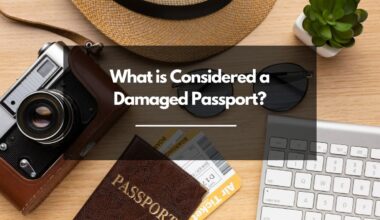As an Amazon Associate, I earn a small commission from qualifying purchases. Learn more about this.
Imagine holding onto the same email address or phone number for your entire life, regardless of changes in residence, service providers, or even the device itself.
Unfortunately, this is not something we see with Passports.
In this article, we talk about why, unlike many other identifiers, Passports transform each time you renew them.
Why Passport Number change on renewal?
If you’ve ever lost a bank card and had it replaced, you might have noticed your card number changes, even though the account number linked to it remains the same.
This isn’t arbitrary, and the logic runs parallel with our passport number changing anytime the old ones are being renewed and returned.
Consider the risk associated with a static passport number.
If that number were to fall into nefarious hands or be associated with fraudulent activities, maintaining it throughout your lifetime would pose a persistent vulnerability.
In contrast, changing numbers disrupt any misuse of the previous passport’s details, instantly invalidating them for malicious purposes and safeguarding your identity in the intricate web of international travel.
Moreover, as we renew our passports, usually every decade, the systems and technologies underpinning its features too have evolved.
Biometrics, RFID chips, and various anti-fraud mechanisms are ceaselessly advancing.
The new passport number is not just a different sequence of characters; it’s linked to an updated system with enhanced capabilities for ensuring secure travel and efficient identification at borders worldwide.
Why Passport Numbers are unique…
Think of your passport number as a unique identifier, much like the VIN (Vehicle Identification Number) for your car. No two cars, even of the same make and model, have identical VINs. Similarly, no two passports carry the same number.
Imagine the chaos if two vehicles shared the same license plate number, or if two products bore the same barcode. Similar issues would arise if passports didn’t possess their own distinctive numbers.
This uniqueness helps in tracking, verifying, and maintaining a secure log of passport holders.
However, while the purpose of a VIN is straightforward, passport numbers serve multi-fold functions. They assist not only in individual identification but also in:
- Streamlining immigration checks
- Facilitating the quick retrieval of an individual’s travel history
- Assisting in investigations, if needed
- Preventing identity theft and ensuring document integrity
Related: Are your passport supporting documents returned during renewal?
The Reason Behind the Enforcement of the Renewal of Passports
When you think about it, a lot has to do with security. We live in a world where safety, especially during travel, is a top priority. The main job of a passport is to prove who you are and where you’re from.
Over time, that little booklet gets worn out. It’s like when you wear a t-shirt too many times, and it starts to fade. The same thing happens with passports. After a lot of use, the pages might tear, or the photo might not look like you anymore.
And if officials can’t clearly see your details or if they doubt the photo is you, there can be problems.
Now, besides the wear and tear, there’s also the matter of changing security features. Think of it like the updates you get on your phone.
Every so often, your phone tells you there’s a new update available, right?
These updates often have new features to keep your phone working well and safely. Passports are a bit like that. Over time, new technologies and safety features get developed.
Basically, this is the reason a timeline for renewal (or expiry date) is assigned to every passport.
Renewing passports means everyone gets the latest security features. This helps countries trust that the passport is real and not fake.
Also, details can change. People get married and change names. Some might even change their gender. A passport needs to have up-to-date details so there’s no confusion when you’re traveling.
A valid passport is also a sort of agreement between countries. It’s like a handshake. One country says, “I trust this person is who they say they are.” And the other country replies, “Okay, we’ll let them in.” If passports weren’t renewed, it would be like using an old handshake that doesn’t work anymore.
You also want to keep in mind that because an old passport is returned with punctured holes after the renewal of your passport, doesn’t make it useless. There are a number of use cases of an old passport.
Conclusion
So, why do passport numbers change when we get a new one? It’s mostly for safety. Just like we change our door locks if we lose our keys, changing passport numbers helps keep our information safe.
It makes sure that if someone has an old copy or details of our passport, they can’t misuse it. When we travel, countries can trust that our passports are real and safe. It’s a simple step that helps make our journeys smooth and worry-free.
